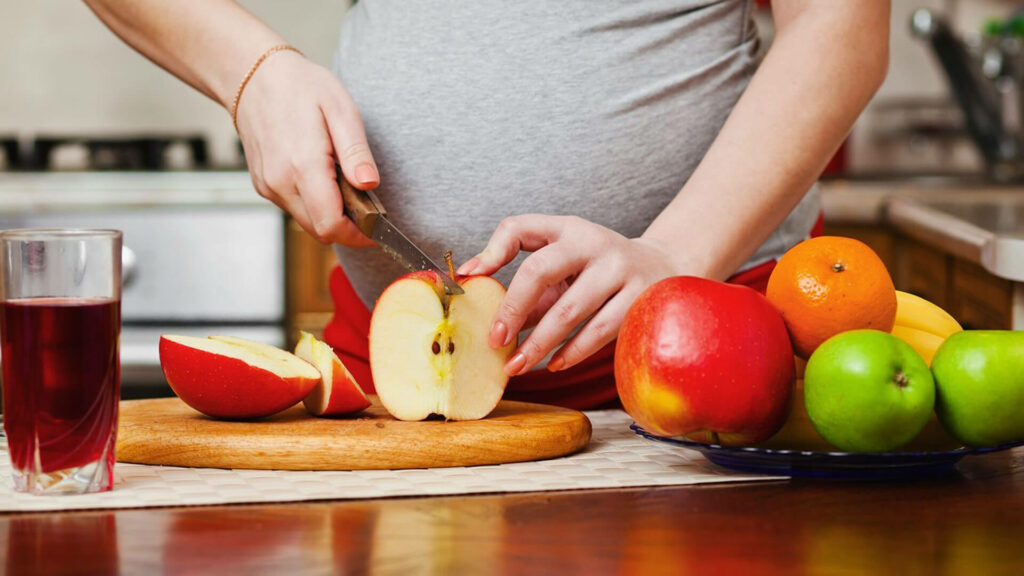For pregnant women, dietary fibre is an essential part of a balanced diet. Having a healthy intake of dietary fibre can help to:
- Keep your bowel movements regular
- Prevent constipation
- Lower blood pressure
- Reduce pregnancy risks such as preeclampsia
The recommended daily intake of dietary fibre for women of childbearing age is 28g daily. Foods such as oat bran, whole wheat bread, whole grain cereals, legumes, nuts seeds, bananas, carrots and celery contain fibre.
[thumbs-rating-buttons ]
You might be interested in

Essential fatty acids and your pregnancy diet
- Long-chain polyunsaturated fatty acids (LCPs) help your baby develop during pregnancy
- Omega-3 and Omega-6 are essential fatty acids because they can only be obtained through diet
- Omega-3 supports a baby’s heart, brain and vision. Omega-6 supports heart health and positively affects cholesterol

How pregnancy nutrition can reduce the rist of infant allergies
Nutrition during pregnancy may influence an unborn baby’s immune system and their allergy risk later in life.
